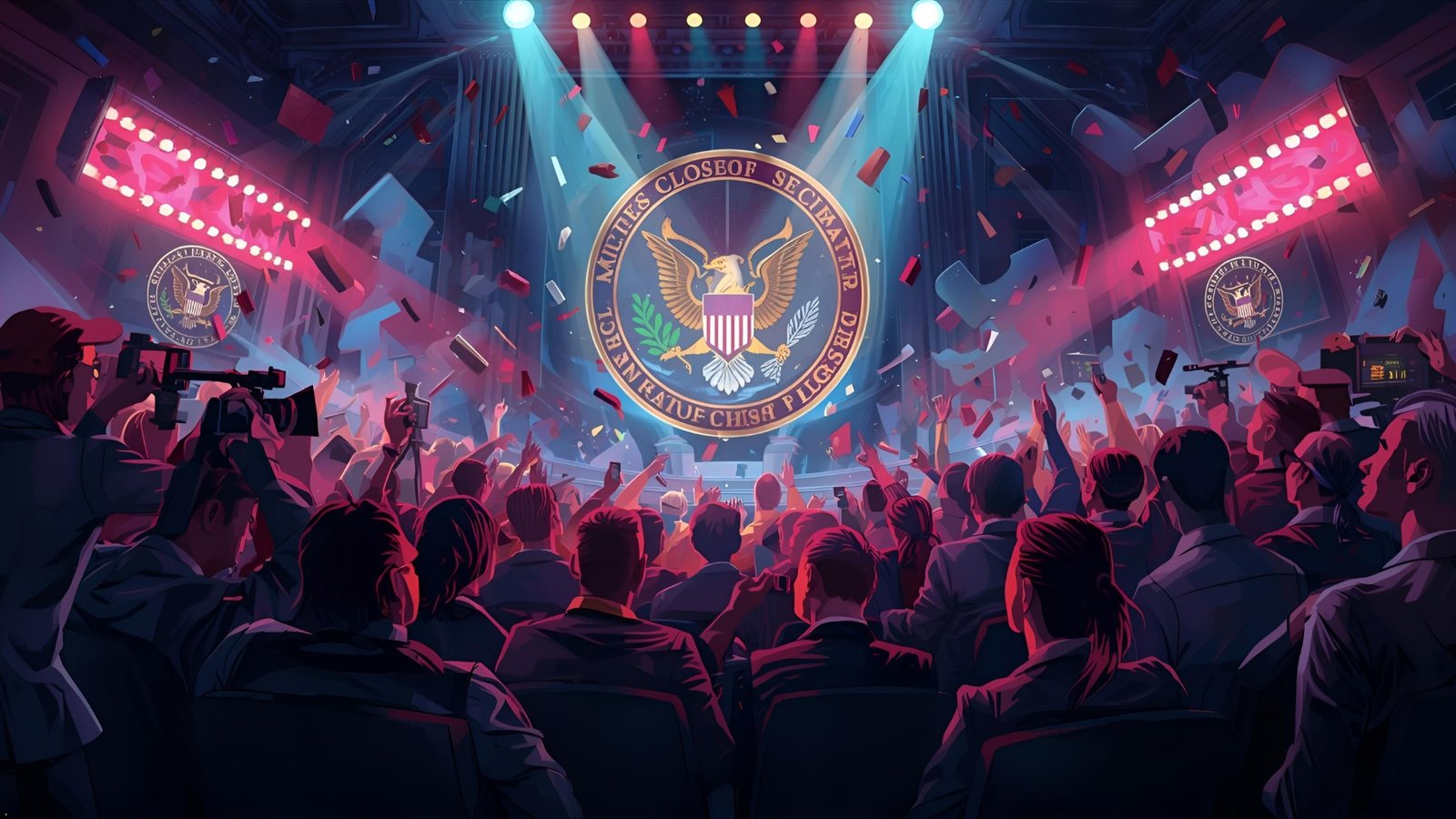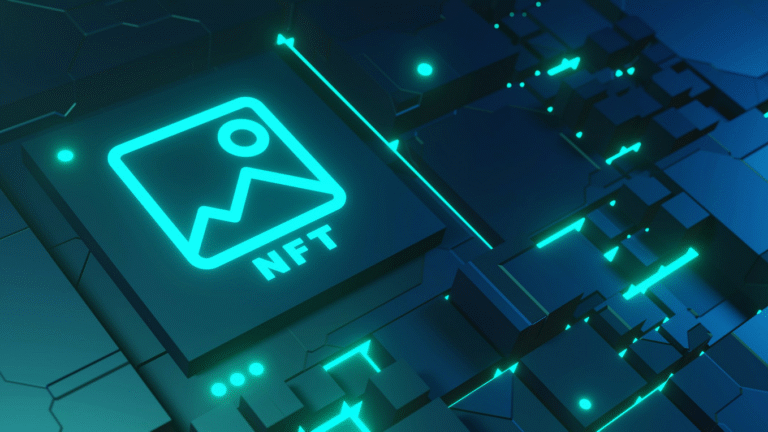The U.S. crypto industry just gained a defining legal signal: a federal court has ruled that Bored Ape Yacht Club (BAYC) Bored Ape NFTs Not. In a decision that could reshape how digital collectibles are bought, sold, and regulated, the judge dismissed securities-law claims tied to the iconic Bored Ape collection—concluding that the tokens do not satisfy the elements of the Howey test used to determine what counts as an “investment contract.” Multiple reports confirm the ruling and characterize it as a watershed moment for non-fungible tokens.
This decision arrives after years of regulatory uncertainty, headline-grabbing investigations, and high-profile lawsuits involving Yuga Labs, the creator of BAYC. It follows months after the SEC closed its investigation into Yuga without bringing charges—momentum that now meets judicial reinforcement from the courts. For creators, marketplaces, and collectors, the ruling offers a clearer legal footing to innovate and transact in digital art and blockchain-based collectibles, even as other crypto assets remain under evolving scrutiny.
In this in-depth analysis, we unpack what happened, why the court concluded Bored Ape NFTs are not securities, how the Howey test applies to NFTs, what the ruling means for ApeCoin, and how this landmark decision may influence regulation, compliance, and market behavior across the broader Web3 ecosystem.
A quick recap: What exactly did the court decide
According to coverage from multiple outlets, a federal judge in California dismissed an investor lawsuit asserting that Bored Ape NFTs and related assets violated U.S. securities laws. Central to the court’s reasoning was the failure to satisfy the Howey test—particularly the elements of a common enterprise and expectation of profits based on the efforts of others—that typically define investment contracts. In practical terms, the court concluded BAYC NFTs function as digital collectibles rather than securities, which are subject to the strict registration and disclosure regime of federal securities law.
Notably, contemporaneous reporting indicates the court’s view extended to ApeCoin in this case context, with the judge finding the claims similarly deficient under securities-law standards. While each asset category can raise different questions, this particular ruling rejected the plaintiffs’ efforts to label BAYC NFTs and ApeCoin as securities on the facts presented.
Why the Howey test matters so much for NFTs
The four prongs of Howey, in plain English
Since 1946, U.S. courts have used the Howey test to determine whether a transaction constitutes an “investment contract” (and therefore a security). The test asks whether there is: (1) an investment of money; (2) in a common enterprise; (3) with a reasonable expectation of profits; (4) derived from the efforts of others—typically the promoter or a third party.
When applied to NFTs, Howey focuses less on the technology and more on the economic reality of the offering and subsequent transactions. If the substance of the transaction is a speculative investment tied to a promoter’s managerial efforts, the instrument can be characterized as a security—even if it’s wrapped in a new technological form.
How the court viewed BAYC under Howey
In this case, the court determined the plaintiffs did not adequately show that BAYC NFTs met the Howey standard—particularly the common enterprise and efforts-of-others prongs. Instead of treating each Bored Ape as a proxy for a pooled investment reliant on Yuga’s future work, the court treated BAYC NFTs as collectibles with variable cultural and market value. That design and market usage moved them outside securities-law treatment—at least on these facts and arguments.
This analysis aligns with the intuitive experience of many NFT collectors: purchasing a digital artwork tends to resemble buying a scarce good—akin to limited-edition prints—more than buying a share in a business. The court’s ruling effectively affirms that distinction for BAYC within this litigation record.
SEC closure, celebrity promotions, and parallel litigation

The SEC investigation that ended without charges
Earlier in the year, Yuga Labs announced that the SEC closed its multi-year investigation without enforcement action. While not a judicial finding, the closure signaled diminishing appetite—at least in that matter—for pressing securities claims against BAYC’s issuer. Now, with a court decision explicitly rejecting securities status for BAYC NFTs in litigation, the regulatory and judicial signals are more closely aligned.
Celebrity-promotion claims and their fate
A related class action had drawn celebrities—including Justin Bieber, Paris Hilton, Madonna, Serena Williams, and Steph Curry—into the legal crosshairs for alleged promotion of BAYC as investment products. Recent reporting indicates those claims were dismissed as well, removing a separate line of attack premised on securities-law theories of liability.
Trademark battles: a separate legal front
The decision that Bored Ape NFTs are not securities sits alongside—but separate from—Yuga’s ongoing intellectual property disputes. In July 2025, the Ninth Circuit overturned a prior $8.8 million judgment in Yuga’s favor in a trademark case involving alleged copycat NFTs, sending the matter back for trial on key infringement questions. That appeals ruling turned on trademark confusion—not securities law—illustrating that while BAYC may not be securities, NFT creators still navigate traditional IP risks.
What this means for creators, brands, and marketplaces
Product design: doubling down on utility, art, and access
The court’s reasoning reinforces a design path where NFTs function as digital collectibles, membership passes, or access tokens rather than investment vehicles. Creators should emphasize use cases that deliver utility (access to events, content, perks), provenance (on-chain authenticity), and community (governance-lite features without investment promises). By avoiding profit-forward marketing or return expectations, projects reduce securities risk and stay aligned with the court’s posture in this case.
Marketing and communications: beware of profit language
A recurring theme in crypto enforcement is the promotional framing around a token. Emphasizing price appreciation, returns, or managerial efforts that will “drive value” can invite Howey scrutiny. In light of the BAYC ruling, responsible marketing for NFTs should highlight artistic value, brand experiences, and collectibility, not investment returns. Clear disclosures—around rights, royalties, and usage—help set expectations and mitigate legal risk.
Marketplace policies: KYC/AML, royalties, and secondary markets
Marketplaces are likely to see this decision as permission to refine policies around royalties and licensing while maintaining strong KYC/AML practices. Even if NFTs are not securities, marketplaces still face obligations on sanctions screening, fraud prevention, and consumer protection. The court’s decision doesn’t eliminate those requirements; it clarifies where securities law likely does not apply to specific NFT categories like BAYC, on these facts.
Implications for ApeCoin and token-adjacent projects
Some coverage of the ruling indicates that the court also found the plaintiffs failed to show ApeCoin was a security within this case, bundling the token alongside BAYC NFTs in the dismissal. That is meaningful because fungible tokens often draw greater regulatory scrutiny than NFTs. While the decision is case-specific and not a binding nationwide rule, it will be cited heavily by defense counsel in future token litigation involving ecosystem coins linked to NFT IP.
Still, project teams should avoid complacency. The facts and marketing around a token launch remain decisive. How a token is distributed, the promises made, and the degree of managerial control over its value can all change the Howey calculus in other cases.
Parsing the court’s reasoning: collectibles vs. investments
Why collectibles logic resonated with the court
The court’s approach treats BAYC NFTs more like scarce cultural goods than slices of an enterprise. Just as limited-edition sneakers or trading cards can command high prices without becoming securities, digital collectibles can accrue value based on cultural relevance, artist reputation, and market demand—not just the managerial efforts of an issuer. That analogy likely helped the court see BAYC NFTs as goods first, not financial instruments.
“Common enterprise” and pooled risk
Common enterprise is often a pressure point for tokens. If buyers’ fortunes rise and fall together with a promoter’s success in building the ecosystem, courts may find a common enterprise. In this case, the court was unconvinced that BAYC’s structure pooled buyers into such a shared risk in a way that met Howey. The uniqueness of each Ape, the collectible framing, and the absence of formal profit-sharing mechanisms undermined the plaintiffs’ theory.
Expectation of profits from the efforts of others
Even if some buyers hoped prices would rise, the court focused on whether profits were primarily expected from Yuga’s managerial or entrepreneurial efforts. The finding that BAYC NFTs do not fit that mold aligns with the nature of art markets, where value is emergent, distributed, and often culturally driven. This nuance matters: speculation alone doesn’t turn a collectible into a security; it’s the structured reliance on a promoter’s efforts that does.
How this decision fits with prior NFT case law
Contrast with early-stage “moments” cases
Earlier cases (for example, litigation involving NBA Top Shot Moments) fueled debate by allowing securities claims to proceed past initial stages, emphasizing platform control and promotional framing. The BAYC decision signals that courts are prepared to draw finer distinctions between token types and contexts. An NFT can live on the same blockchain as a token deemed a security in another case yet receive different treatment if the facts, marketing, and buyer expectations differ.
Trademark/IP disputes remain live issues
As noted, intellectual property remains an active front in NFT law. BAYC’s separate trademark litigation—remanded for trial by the Ninth Circuit—shows that creators must still defend brand integrity, provenance, and marketplace practices. The securities question is only one piece of a complex legal mosaic; IP, consumer protection, and right-of-publicity rules still loom large.
Also Read: Factors Driving the Price of Expensive NFTs in 2024
Practical guidance for Web3 teams after the BAYC ruling

Design your NFTs like products, not profit vehicles
Create experiences oriented around utility, community access, and digital identity. Offer clear license terms, outline what holders can and cannot do, and avoid implying that the issuer will drive price appreciation through managerial efforts. Treat drops like limited-edition releases with transparency on supply, traits, and any benefits.
Separate collectible experiences from financial products
If your project also contemplates fungible tokens, keep their design and communication distinct from the collectible narrative. Document the purpose, governance, and limitations in plain English. Where appropriate, consult counsel to evaluate the mechanics (distribution, vesting, control) against Howey and related tests.
Maintain strong compliance hygiene
KYC/AML, sanctions, tax reporting, consumer protection, and privacy obligations persist regardless of securities status. Marketplaces and teams should invest in fraud detection, royalty enforcement (where applicable), and accurate metadata. The court’s decision lowers one type of legal risk—but does not eliminate others.
Market impact: confidence boost with caveats
Renewed interest from brands and creators
The ruling will likely embolden mainstream brands, artists, and game studios considering NFT strategies. With a major court treating a leading NFT collection as a collectible rather than a security, the perceived legal tail risk shrinks. Expect more membership NFTs, digital merch, and token-gated experiences to roll out as teams gain comfort.
Investment theses and venture flows
For investors, the decision may rekindle interest in NFT infrastructure—from wallet UX and compliance rails to creator tooling and royalty-respecting protocols. While broad crypto markets still react to macro factors, a clearer legal path for NFTs can spur category-specific funding and commercial partnerships.
Caution: facts matter, and appeals happen
Legal outcomes turn on facts. Another project with heavier profit-forward marketing, revenue shares, or managerial commitments could meet a different fate under Howey. And while this decision is powerful persuasive authority, it could face appeals or be distinguished in future cases. Teams should view the ruling as guidance, not a blanket amnesty.
How the ruling intersects with culture and community
Collectibles as social identity
One reason Bored Apes broke out is cultural resonance—avatars as digital identity and status signals in online communities. Courts acknowledging that NFTs function as collectibles and cultural goods validates what many users experience firsthand. As the line between fashion, fandom, and finance blurs, this legal clarity lets culture lead without defaulting to financial regulation.
The future of tokenized IP
Brands increasingly experiment with tokenized IP—letting holders license characters, participate in storytelling, or access perks. With securities risk lower for collectible-form NFTs like BAYC (on these facts), expect more co-creation models, on-chain licensing, and fan-led commercialization experiments that build durable communities without triggering securities rules.
The bottom line: a landmark for NFTs, a blueprint for compliance
The court’s ruling that Bored Ape NFTs Not is a landmark for Web3. It aligns with the SEC’s earlier decision to close its Yuga inquiry without charges, clarifies how Howey applies to flagship NFT projects, and offers practical direction for creators, brands, and marketplaces. While not the final word on every digital asset, it meaningfully narrows where securities law is likely to bite in the NFT domain—and opens space for innovation in digital ownership.
FAQs
Are all NFTs now legally not securities because of this decision?
No. The ruling addresses BAYC and related allegations within this case. Courts evaluate the economic reality and facts of each project. NFTs promoted with profit guarantees, revenue shares, or heavy reliance on a promoter’s efforts could still be treated as securities in other cases. What changed here is that a leading court found BAYC’s collectible model did not satisfy Howey on these facts.
Did the court say anything about ApeCoin?
Reporting on the decision indicates the judge also rejected claims that ApeCoin was a security in this litigation, contributing to the broader dismissal. That doesn’t automatically classify every fungible token as a non-security, but it’s a strong data point for projects with utility-forward designs and restrained marketing.
How does this relate to the SEC’s investigation into Yuga Labs?
Earlier this year, Yuga Labs said the SEC closed its investigation without bringing charges. That regulatory development foreshadowed the court’s posture and together they form a coherent signal: BAYC NFTs, as designed and marketed here, are better viewed as collectibles than investment contracts.
Does the decision affect Yuga’s other lawsuits?
This securities ruling is distinct from Yuga’s trademark disputes, including the Ninth Circuit’s July 2025 decision that vacated an $8.8 million judgment and sent that case back for trial. Trademark law asks different questions—primarily whether consumers are confused about source or sponsorship—so those fights continue on separate legal terrain.
What should NFT creators and brands do now?
Treat NFTs like products and experiences, not investment vehicles. Emphasize utility, ownership, and culture; avoid profit-forward messaging; document license rights; and keep robust compliance on marketplace operations (KYC/AML, fraud, sanctions). This ruling is a blueprint for sustainable, legally resilient NFT design—without overstepping into securities territory.


